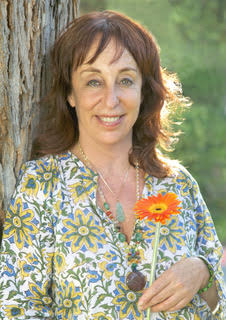Empowering Sensitive Children to Overcome Shame
- Written by Judith Orloff, MD

Highly sensitive children are often shamed for their sensitivities. They grow up believing there’s something wrong with them. In “The Highly Sensitive Rabbit,” you’ll see how being sensitive is a creative talent that needs to be nurtured.
Shame is a deeply painful emotion, a sense of humiliation and unworthiness that comes from feeling flawed. Unfortunately, in a culture that often values toughness, loudness, and extroversion, sensitive children are frequently misunderstood. They’re told to “stop being a crybaby,” and their emotional responses may be dismissed or even ridiculed. Rather than being supported, they’re often shamed for being “too emotional.” But their sensitivity is not a weakness—it’s a gift.
As a psychiatrist who was also a highly sensitive child, I know firsthand how shame can cloud one’s self-worth. I remember my mother saying in front of her friends, “Judith, you need to toughen up and get a thicker skin. You’ll never survive in this world otherwise.” That one comment made me want to disappear. When children are shamed, especially in front of others, it can stick in their psyche and follow them into adulthood—affecting their confidence, relationships, and sense of identity.
Understanding Highly Sensitive Children
Highly sensitive children are biologically wired to feel more deeply than others. Their nervous systems are finely tuned, and they don’t have the same filters that many children do to block out stimulation. As a result, they are easily overstimulated. They absorb everything—both joy and pain—with heightened intensity. These are the children who may shed tears when they see someone else suffering, who are easily overwhelmed by loud noises or chaotic environments, and who are deeply moved by beauty and kindness.
Helping Children Heal from Shame
 Sensitive children are particularly vulnerable to internalizing shame. They may be teased for crying, for preferring quiet play, or for reacting strongly to perceived slights. Many feel like they don’t fit in.
Sensitive children are particularly vulnerable to internalizing shame. They may be teased for crying, for preferring quiet play, or for reacting strongly to perceived slights. Many feel like they don’t fit in.
Take Aurora, the courageous heroine in my book “The Highly Sensitive Rabbit.” She is left out of games, teased for being quiet and “too emotional.” Like many sensitive children, Aurora starts to believe the negative messages she receives from others—until she learns that her sensitivity is actually her strength.
Most parents want to help their sensitive children thrive, but they may not know how to counteract the negative messages their children encounter.
Tips for Parents to Address Their Highly Sensitive Child’s Shame
Here are some ways parents can support and empower their sensitive children:
- Validate their emotions: Instead of saying, “Don’t cry,” you can say, “I see that you’re feeling overwhelmed—it’s okay to feel that way. Let me help you quiet down.”
- Celebrate their uniqueness: Talk about their ability to sense others’ feelings, their creativity, and their deep thinking as superpowers.
- Protect their boundaries: Never tolerate anyone—whether a teacher, family member, or peer—shaming your child for being sensitive.
- Intervene against bullying: If bullying is occurring, involve the school immediately and insist on clear policies that protect your child.
- Model healthy sensitivity: When parents embrace their own feelings and model empathy, children learn that it’s safe and strong to feel deeply.
Becoming Their Safe Haven
Sensitive parents are uniquely positioned to raise sensitive children with confidence. When parents embrace their own gentleness and vulnerability, they become powerful role models. Children learn by watching us. When we show them that sensitivity and strength can coexist, they begin to believe it for themselves.
As parents, educators, and community members, we have a responsibility to nurture the sensitive souls among us. These children are the future artists, healers, and visionaries of the world. By empowering them to overcome shame and embrace who they truly are, we help them grow into emotionally balanced, courageous, and compassionate adults.
Judith Orloff, MD is a New York Times bestselling author whose books include The Genius of Empathy: Practical Tools to Heal Yourself, Your Relationships and the World, The Empath’s Survival Guide, and Thriving as an Empath, which presents daily self-care tools for sensitive people. Her upcoming children’s book The Highly Sensitive Rabbit is about a caring rabbit who learns to embrace her gifts of sensitivity through the love and support of other animals. A UCLA Psychiatric Clinical Faculty Member, she blends the pearls of conventional medicine with cutting-edge knowledge of intuition, empathy, and energy. Dr. Orloff specializes in treating highly sensitive people in her private practice and online internationally. Her work has been featured on The Today Show, CNN, Oprah Magazine, the New York Times, and USA Today. Dr. Orloff has spoken at Google-LA and TEDx. Explore more at www.drjudithorloff.com










